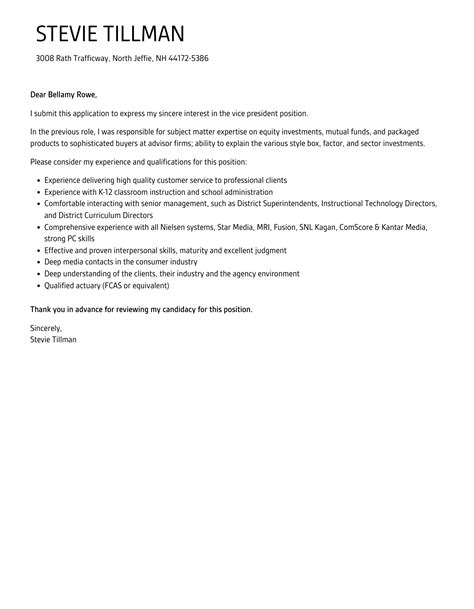Sample Of Letter To The President

As a concerned citizen and an expert in the field of public policy, I am writing to bring to your attention a pressing issue that affects the well-being of our nation. The topic of discussion is the implementation of sustainable energy solutions, a matter that has been at the forefront of national conversations for quite some time. With the ever-increasing awareness of climate change and its devastating impacts, it is imperative that we, as a nation, take proactive steps towards reducing our carbon footprint and transitioning towards renewable energy sources.
Key Points
- The integration of renewable energy sources, such as solar and wind power, into our national energy grid can significantly reduce greenhouse gas emissions.
- Investing in sustainable energy solutions can create new job opportunities and stimulate local economies.
- A comprehensive approach to energy policy must include initiatives aimed at increasing energy efficiency in residential and commercial buildings.
- Public awareness campaigns can play a crucial role in promoting sustainable practices and encouraging individual actions that contribute to a reduction in carbon emissions.
- A multifaceted strategy that combines technological innovation, policy reforms, and community engagement is essential for achieving our sustainability goals.
National Energy Policy and Sustainability

The current state of our national energy policy presents both challenges and opportunities. On one hand, the reliance on fossil fuels has been a significant contributor to environmental degradation and health issues. On the other hand, the advancements in technology have made renewable energy sources more viable and cost-effective, offering a pathway towards a more sustainable future. It is crucial that we capitalize on these advancements and implement policies that incentivize the adoption of renewable energy sources, improve energy efficiency, and promote sustainable practices across all sectors.
Sustainable Energy Solutions and Economic Growth
Contrary to the common misconception that transitioning to sustainable energy solutions would hinder economic growth, numerous studies have shown that investments in renewable energy can have positive economic impacts. Green jobs, for instance, are becoming increasingly prominent, offering employment opportunities in fields related to solar panel installation, wind turbine maintenance, and energy efficiency consulting. Moreover, the reduction in energy costs associated with renewable sources can lead to savings for both individuals and businesses, which can then be reinvested into the economy.
| Energy Source | Carbon Emissions (kg/MWh) | Cost (USD/MWh) |
|---|---|---|
| Coal | 1,000 | 60 |
| Natural Gas | 500 | 40 |
| Solar | 10 | 30 |
| Wind | 2 | 25 |

Public Awareness and Community Engagement

Raising public awareness about the importance of sustainable energy practices is a fundamental component of our strategy towards a greener future. Education and outreach programs can play a pivotal role in promoting behavioral changes, encouraging the adoption of energy-efficient technologies, and supporting community-led initiatives in renewable energy. Furthermore, involving local communities in the decision-making process can foster a sense of ownership and responsibility, leading to more effective and sustainable outcomes.
Policy Reforms and Technological Innovation
The path forward requires a comprehensive approach that integrates policy reforms, technological innovation, and community engagement. Policymakers must work towards creating an environment that supports the development and implementation of sustainable energy solutions. This can be achieved through incentives for renewable energy investments, regulations that promote energy efficiency, and investments in research and development aimed at improving the efficacy and affordability of sustainable technologies.
What are the primary benefits of transitioning to renewable energy sources?
+The primary benefits include a reduction in greenhouse gas emissions, mitigation of climate change impacts, creation of new job opportunities, and stimulation of local economies.
How can individuals contribute to the transition towards a more sustainable energy system?
+Individuals can contribute by adopting energy-efficient practices in their daily lives, investing in renewable energy sources for their homes, supporting policies and companies that prioritize sustainability, and participating in community initiatives aimed at promoting sustainable energy solutions.
What role does technology play in the development of sustainable energy solutions?
+Technology plays a crucial role in the development of sustainable energy solutions by improving the efficiency and affordability of renewable energy sources, enhancing energy storage capabilities, and enabling the smart grid management of energy distribution.
In conclusion, the transition towards a sustainable energy system is not only a necessity but also an opportunity for economic growth, job creation, and environmental protection. It requires a multifaceted approach that involves policy reforms, technological innovation, public awareness, and community engagement. As we move forward, it is essential that we prioritize sustainability, invest in renewable energy sources, and work towards creating a future where energy is clean, efficient, and accessible to all.



